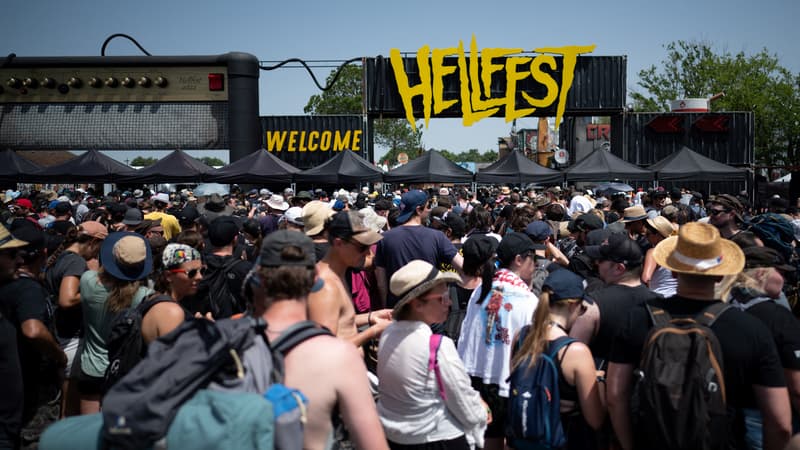Hellfest, we love Green or Marsatac under the same “Damocles sword.” This summer, all France festivals are again in violation of regulations on solid emissions considered unanimously “inapplicable” and that the government has just accepted to reexamine.
“We are in a totally absurd equation because all outdoor events in France, and not that festivals, today cannot comply with regulations,” said Malika Séguineau, CEO of Ekhoscenes, the main private union of live action.
The very technical standard against which the festivals are struggling comes from a 2017 decree that requires, under a penalty of sanctions, a series of obligations aimed at strengthening the protection of spectators and residents against noise pollution.
Under this text, complemented by a decree in 2023, the festivals are required to be limited to 3 decibels (DB) their “global emergency”, clearly the difference between the noise generated by its activities and that, “residual” or usual, of its place of implementation, which can be a field in the middle of nature.
“Incalculable and absolutely not tenable”
“As the residual level is extremely low, we exploit these 3 dB very quickly. In this aspect, we currently have no solution,” says Angélique Ducinmin, president of the agi-child association that works to reconcile amplified music and public health.
According to the profession, this provision is not suitable for outdoor festivals where sound spread is subject to whims (wind direction, impact of the level of assistance …) that are saved in closed places.
“This level is incalculable and absolutely not sustainable,” said Béatrice Degranges, director of the Marsatac Festival, who occupies neighborhoods this weekend in Marseille.
To continue living, the festival bosses, since, therefore, they have no choice but to contravene this rule, at the risk of reaching, in case of control, a fine or even an administrative suspension.
“As professionals, acting in a framework that takes us out of the law is not comfortable, but it is no more for the authorities fighting to apply the controls,” continues Béatrice Disarges, evoking a “Damocles sword.”
Towards a “softening”?
Directed for years, the battle for outdoor festivals, however, begins to bear fruit. On Tuesday, June 10, the Government said it was “aware” of its “difficulties” and announced the establishment of a working group responsible for identifying alternative solutions at the end of November to limit “solid emergency.”
“Regulations can evolve towards technically more easily applicable provisions,” said a three ministries press release (culture, health, ecological transition).
In April, in the spring of Bourges, Culture Minister Rachida Dati had been more affirmative when drawing the horizon of “a relaxation of regulations, particularly at emergency levels.”
Launched initiatives
The site promises to be difficult and expensive for the events already fragile economically. But you can trust the work of several festivals, including Marsatac, which has launched experiments on “directivity” since 2022, forming technicians and artists awareness.
“The challenge is to be able to maintain outdoor events in the cities that are in the heart of the social bond,” says the director of the festival.
This debate resonates particularly in Clisson, in Loire-Atlantique, who welcomes Hellfest every year in June, one of the world’s largest metal festivals.
“Having this festival is an opportunity, but it is obvious that, for the inhabitants, it is four days of hell,” said Mayor Laurence Luneau, according to whom the 2017 decree, at least had the merit of changing consciences.
“The organizers thought a lot about the traffic jams of the festival attendees, but the inhabitants were a bit forgotten,” he said.
Waiting for new regulations, the Ekhoscenes Union demands to “protect” the 2025 festivals season. “Today we are satisfied because we returned to the table but we are careful: the regulations are still there and, therefore, there is a risk to the festivals,” said Malika Séguineau, asking for “flexibility” in the controls.
Source: BFM TV


